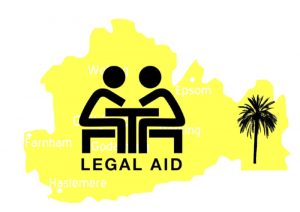Surrey has become a ‘legal aid desert’, marked by a critical shortage of support services, leaving vulnerable individuals without expert advice on key issues such as, community care, education, and immigration.
The Access to Justice Report, by South West London Law Centres (SWLLC), was launched at the University of Surrey’s School of Law Access to Justice Clinic on Wednesday, 20 March, by His Honour Sir Robin Knowles CBE, Chair of the Commercial Bar Association of England & Wales. Sir Robin is a member of the Civil Justice Council and chairs its Standing Committee on access to justice for those without means.
The report highlights the need for accessible legal aid and representation and raises awareness of the challenges faced by vulnerable people in Surrey.
It catalogues the gaps in legal aid within Surrey; it highlights cases where people have had to rely on non-legal advice services instead of specialist legal services. The lack of specialist legal advice is particularly acute in employment, education and immigration.
The report shows that most social welfare advice is provided by voluntary or not-for-profit agencies, with Citizens Advice taking the leading role; however, there is a lack of specialist legal services.
People were left without expert legal advice on areas such as:
- School admissions and appeals
- School transport
- Special Education Needs
- Community care packages and complaints
- Immigration advice.
Stacey Edgar, Deputy CEO, South West London Law Centres, said:
“At the South West London Law Centres, we have directly observed the significant difficulties faced by individuals and families lacking proper guidance on matters such as immigration and education.
“Our findings now confirm that Surrey has limited mechanisms for accessing justice, signalling the urgency of leveraging insights from this new research to implement a strategy that addresses community needs.
“We’re pushing to fill these gaps because access to justice shouldn’t depend on where you live or what you can afford.”
The report proposes new initiatives to improve legal support, including a Family Law Court Help Desk, an Education Rights Advice Project, and Immigration and Asylum Caseworkers in Surrey.
Currently, the research proposals are transforming into a project to create these mechanisms in Surrey, and SWLLC is welcoming donations, volunteers, and partners to be involved in expanding access to justice to meet the needs of impacted community members.
Liz Williams, Associate Professor and Director of Clinical Legal Education at the University of Surrey, said:
“The Access to Justice Clinic at the School of Law understands that social transformation and legal impact is only possible through a collaborative approach. The Clinic has been a flourishing initiative since its launch four years ago and plans to expand in partnership with South West London Law Centres, local charities and legal professionals on a broad range of collaborations to help solve the access to justice crisis in Surrey.”
Professor Veronica Rodriguez-Blanco from the School of Law added:
“The School of Law is committed to placing access to justice at the centre of legal education in developing social sensitivity among the future lawyers that we are educating.”


